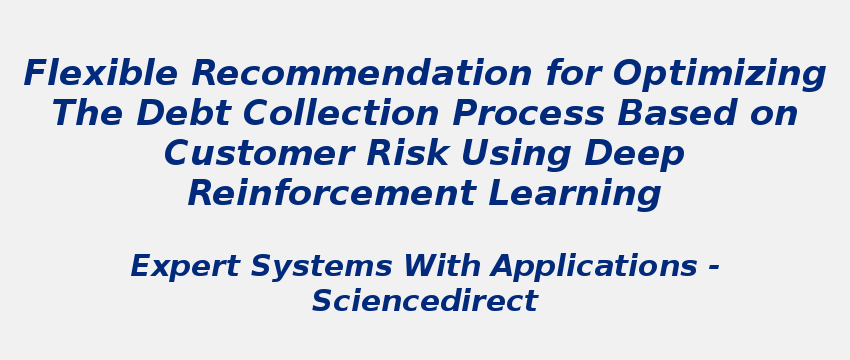Research Area: Machine Learning
Finance sector loss can be minimized by reducing the number of defaulters who often miss payments during debt collection. Most research focused on the credit risk analysis before approving the loan to the customer, and few papers related to predicting the defaulters. Certain works are focused on minimizing the number of calls made by debt collectors during the collection process. We have developed a Flexible Recommender System using Deep Reinforcement Learning (FRS-DRL) to provide Flexible recommendations based on the risk category of the customers. Initially, we categorized customers into defaulters and non-defaulters. The defaulters are again classified into Very Low, Low, Medium, High, and Very High-Risk customers. Based on this category, we recommend suitable actions to the Field Collection Agent (FCA) to increase the collection rate. The suggestions include how frequently the customer should be contacted, statements, and the dates and times of visits. At the same time, the statements define instructions to FCA for collecting money. Managers are traditionally in charge of this type of allocation; they must understand each customer personally. Our proposed recommendation method eliminates the need for manual mapping. We build a Hybrid Actor-Critic algorithm with an Adaptive Trust region Policy Optimization algorithm for classifying the customer category and providing the appropriate recommendations to reduce the defaulter rate, thereby increasing the collection efficiency and reducing the human effort. This FRS-DRL is tested in a real-time environment for three months and provides an improved reward rate with and without transfer learning at 73.22 % and 62.44 %. The collection percentage improved by 20.34 % in five different regions, with a 16.30 % reduction in the number of visits made by the FCA.
Keywords:
Author(s) Name: Keerthana Sivamayilvelan , Elakkiya Rajasekar , Subramaniyaswamy Vairavasundaram, Santhi Balachandran, Vishnu Suresh
Journal name: Expert Systems with Applications
Conferrence name:
Publisher name: ScienceDirect
DOI: 10.1016/j.eswa.2024.124951
Volume Information: Volume 256,(2024)
